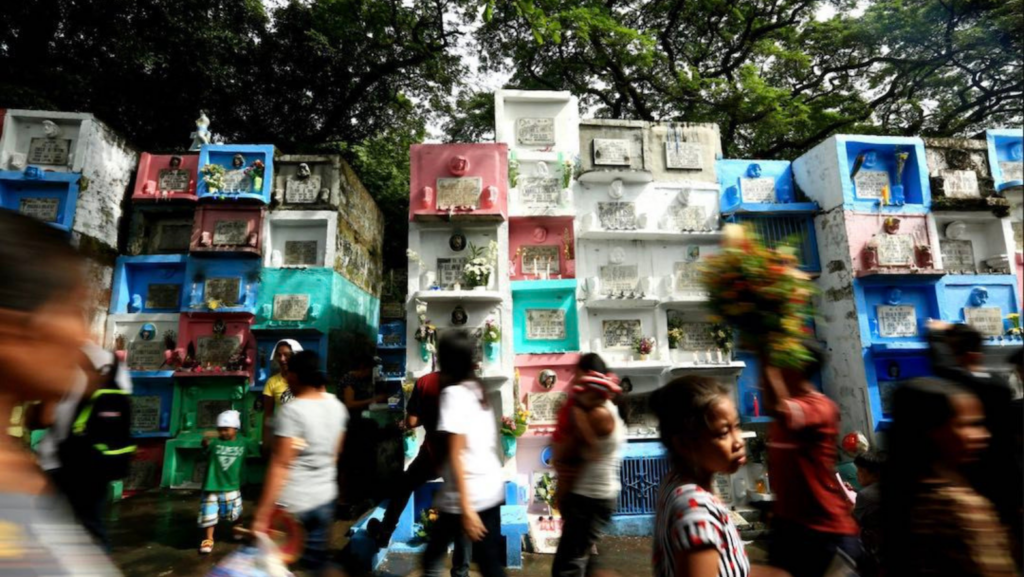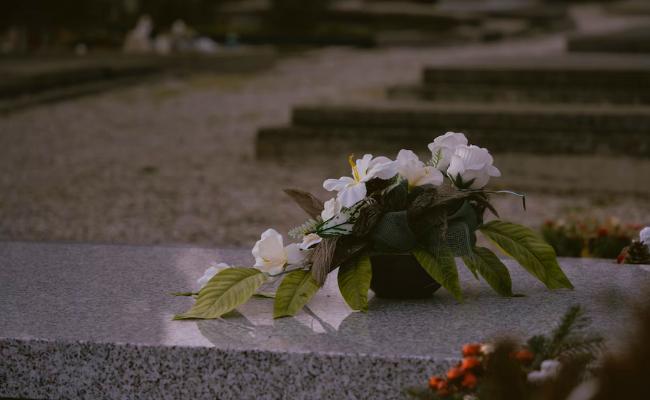Sleeping at cemeteries and other Filipino All Souls Day traditions

IMAGE CREDIT: INQUIRER/EDWIN BACASMAS
All Souls Day is a very meaningful holiday in the Philippines. Filipinos put a premium on family and tradition, which means even those who have already passed are still remembered and honored—especially on this day.
Undas, as it’s called in the Philippines, is held annually on Oct. 1st and 2nd, lining up with the Catholic celebrations of All Saints and All Souls Day. For most families, it’s a reunion of sorts. People usually return to their home provinces in order to spend the day (and sometimes night) with their families at cemeteries to make sure that the deceased know that they’re still being remembered and celebrated.
Much like the Latin community, many of our traditions and observances were inherited by our shared colonizers: the Spanish. This is why some traditions are similar to those who celebrate Dia de los Muertos in many parts of the world.
Here are some yearly traditions that many Filipinos observe during Undas.
Traveling home
Going home is a big deal during Undas. Many people who work in financial centers like Metro Manila or Cebu City usually return to their home provinces in order to observe the occasion with their immediate and extended family.
Undas 2023: Temporary road closures, traffic rerouting near Manila North Cemetery https://t.co/PcVgmhmpBL
— Inquirer (@inquirerdotnet) October 25, 2023
It’s usually an expensive and lengthy affair that takes multiple modes of transportation, like planes, boats, ferries, and buses, but it’s a tradition that’s still widely observed. Long road trips are also common for people who have their own cars.
Cleaning the grave
The first thing people do when they arrive at the cemetery is clean the grave. Depending on what type of grave it is, it can involve some wiping, or a full production filled with sweeping, raking leaves, and sometimes even vacuuming for mausoleum type of graves.
Offering flowers

Photo from Unsplash
Buying flowers and laying them by the dead is another extremely common practice. From single flowers to elaborate arrangements, flowers are a big part of the Undas experience. Florists in the Philippines are usually very busy during this season due to the amount of orders they receive.
The areas by the gates of cemeteries are also filled with people selling floral arrangements you can buy right before entering.
Lighting up candles or incense
Depending on your cultural background, lighting up candles or incense is another must when you’re paying respects to the dead. Many Filipinos come from mixed Chinese heritage, so a bundle of red incense is a common offering when people are paying homage to their ancestors.
Praying
Depending on the denomination of Christianity observed by the dead and their family, there are different types of prayers that are specific to this day. Since Undas is originally a Catholic observance, many of the prayers and traditions practiced during the occasion are of Catholic origin. Whatever the prayer though, it’s believed that the dead would appreciate it.
Offering food (and helping yourself to some)
While Undas isn’t a party, it’s still a family get-together. This Filipino tradition means food (and lots of it) is involved. The Undas twist, though, is preparing the favorite food items of the deceased. It serves as an offering or a gesture that they’re still remembered by the living. The dead may not be able to enjoy it, but we can always help ourselves to a plate (or two) in their memory.
You may also like: A beginner’s guide to Filipino superstitions: Funeral edition
Staying in the cemetery overnight

Depending on certain family traditions and cemetery rules, some families choose to stay with their beloved dead overnight. People in rural areas stay on mats under the shade or pitch tents, while the uber-wealthy stay in their fully decked-out mausoleums equipped with bathrooms and air conditioning.

